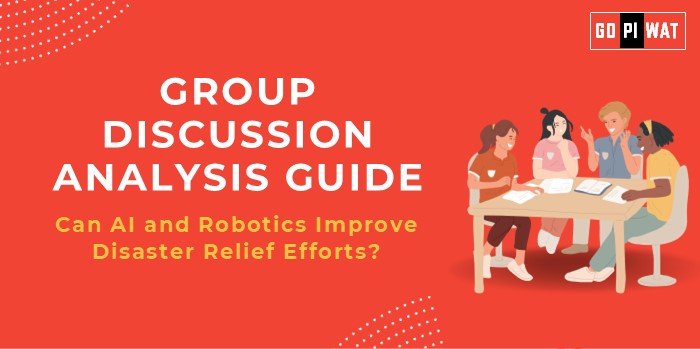📋 Group Discussion Analysis Guide
🌟 Topic: Should Tech Companies Be Held Liable for the Social Impact of Their Products?
🔍 Introduction to the Topic
Opening Context: Technology shapes society in profound ways, from influencing behavior through social media to transforming economies via automation. The question of holding tech companies accountable for the societal effects of their products is increasingly pressing.
Topic Background: Concerns over misinformation, privacy breaches, and addiction have sparked global debates about corporate accountability. This discussion explores whether tech companies should share responsibility for social consequences arising from their innovations.
📊 Quick Facts and Key Statistics
- Social Media Impact: Misinformation spread on platforms influenced 62% of respondents in a global survey to change their views (WEF, 2023).
- Global Privacy Breaches: Over 2 billion user accounts were compromised in 2022, raising questions about tech accountability (Cybersecurity Ventures).
- Tech Addiction Statistics: 1 in 3 teenagers shows signs of social media addiction (Pew Research, 2023).
- Economic Disruption by AI: Automation is predicted to displace 85 million jobs globally by 2025 (World Economic Forum).
🌐 Stakeholders and Their Roles
- Tech Companies: Innovators and decision-makers responsible for product design and policies.
- Governments: Regulators creating frameworks for accountability and ethical practices.
- Consumers: Users who demand transparency and ethical practices from tech companies.
- Civil Society Organizations: Advocates for user rights, privacy, and ethical standards.
✅ Achievements and Challenges
- Achievements:
- Economic Growth: Tech innovations contributed $2.5 trillion to the global economy in 2023.
- Social Connectivity: Social media platforms connect 4.8 billion people worldwide, enabling communication and activism.
- AI in Healthcare: AI-powered diagnostic tools saved 5 million lives in 2022.
- Challenges:
- Privacy Violations: Cases like the Facebook-Cambridge Analytica scandal highlight risks.
- Misinformation Epidemic: Disinformation campaigns have influenced elections and fueled public unrest.
- Mental Health Concerns: Excessive screen time is linked to increased anxiety and depression rates.
🌍 Global Comparisons
- Europe: GDPR fines have held companies accountable, with €1.5 billion in penalties issued in 2023.
- China: Strict state regulations ensure control over tech platforms but raise questions about censorship.
💡 Structured Arguments for Discussion
- Supporting Stance: “Tech companies, being the creators and profiteers of technology, must be held liable for its societal impact to ensure ethical development and usage.”
- Opposing Stance: “Holding tech companies liable could stifle innovation and place undue burdens on them, diverting resources from development to litigation.”
- Balanced Perspective: “While tech companies should take responsibility for their products, governments and users must also share the burden to create a balanced ecosystem.”
🎯 Effective Discussion Approaches
- Opening Approaches:
- “With 2 billion privacy breaches reported in 2022, the need for accountability in the tech industry has never been greater.”
- “Balancing innovation and responsibility is the cornerstone of sustainable technological progress.”
- Counter-Argument Handling:
- Highlight existing regulatory frameworks (e.g., GDPR) and their impact.
- Emphasize shared responsibility among stakeholders.
📈 Strategic Analysis of Strengths and Weaknesses
- Strengths: Fosters ethical innovation, builds user trust and loyalty, mitigates societal risks.
- Weaknesses: Potential to stifle innovation, legal complexities in enforcement.
- Opportunities: Collaboration with governments to set ethical standards, creation of more user-friendly, ethical technologies.
- Threats: Loss of competitive edge to less-regulated markets, increased costs due to compliance.
📚 Connecting with B-School Applications
- Real-World Applications: Use cases in corporate governance and business ethics discussions. Exploration of stakeholder responsibility models in leadership courses.
- Sample Interview Questions:
- “What role do you think governments should play in regulating tech companies?”
- “Can self-regulation by tech companies effectively address societal concerns?”
- Insights for B-School Students: The importance of corporate responsibility in the tech-driven era. Lessons from regulatory frameworks like GDPR for global business strategy.


